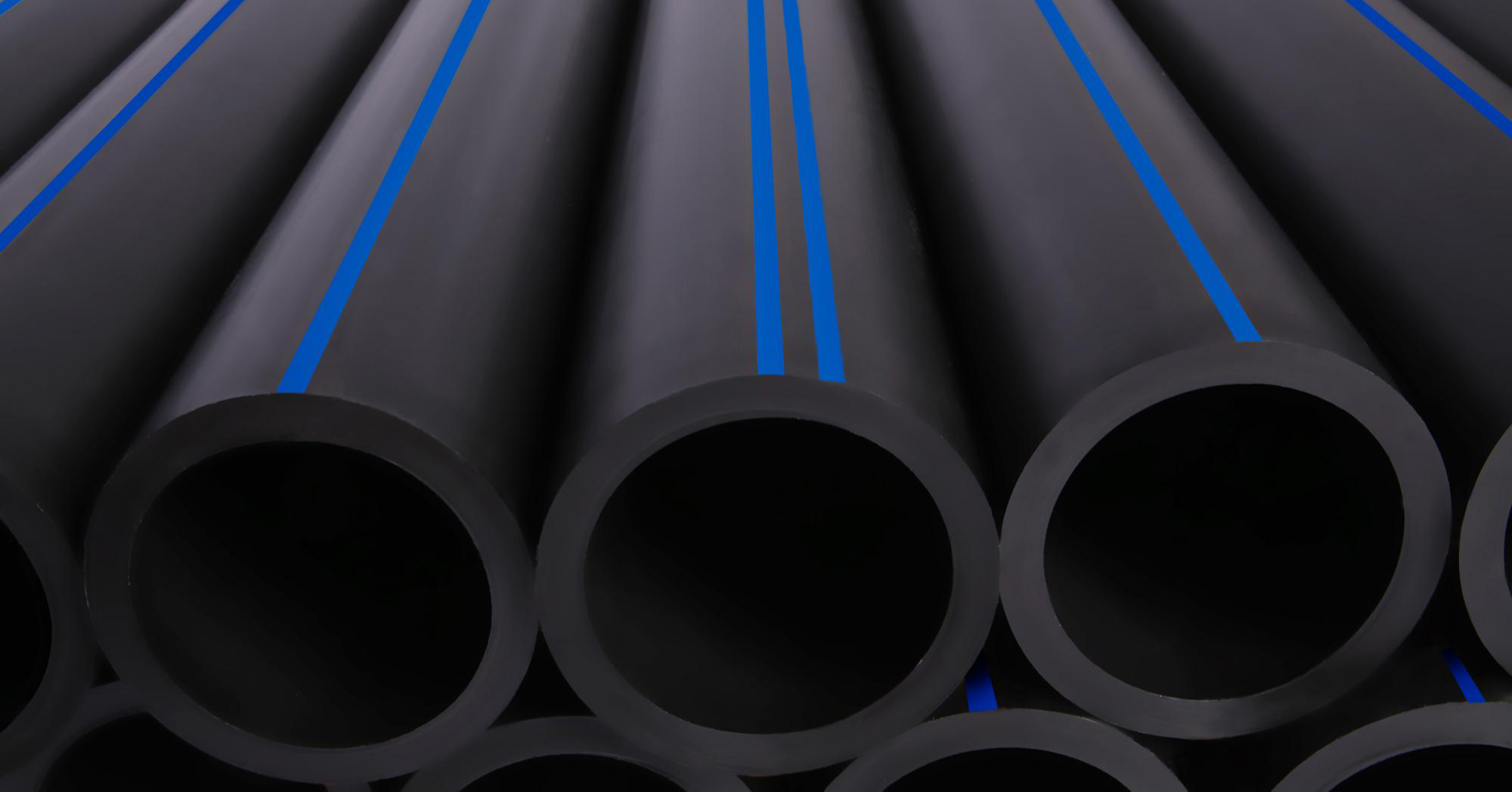The Innovation of American Plastics HDPE Pipe Manufacturing: What You Need to Know
Comprehending the Key Advantages of HDPE Pipe for Water and Wastewater Management
The usage of HDPE pipeline in water and wastewater management provides many benefits that merit consideration. Its outstanding toughness and lengthy life-span make it a recommended selection for several projects. Furthermore, the material's resistance to rust and chemical damage enhances its reliability in various settings. Nonetheless, the benefits expand beyond just longevity and resistance. Discovering its cost-effectiveness and environmental influence exposes even much more engaging factors for its widespread adoption in modern-day infrastructure
Remarkable Toughness and Durability

HDPE pipe sticks out for its phenomenal sturdiness and longevity, making it a preferred selection in water management systems. Constructed from high-density polyethylene, these pipelines can withstand significant stress and anxiety, guaranteeing dependable efficiency gradually. Their robust nature permits them to sustain extreme ecological problems, including temperature level fluctuations and soil movements, which can create various other materials to fall short.
The lifespan of HDPE pipes usually goes beyond half a century, supplying a cost-efficient remedy for districts and markets alike. Furthermore, the material's lightweight buildings streamline installment, minimizing labor expenses and timeframes. This resilience lessens the requirement for constant fixings or substitutes, further enhancing its financial appeal.
In water monitoring applications, the reliability of HDPE pipes indicates fewer disturbances and boosted solution connection, making them important to lasting facilities advancement. The combination of sturdiness and long life strengthens HDPE's function as a cornerstone in effective water management remedies.

Resistance to Rust and Chemical Damage
While lots of materials catch rust and chemical damage gradually, HDPE pipelines display amazing resistance, making them suitable for various water monitoring applications. This strength originates from the molecular structure of high-density polyethylene, which is naturally non-reactive and does not rust like metals or weaken from exposure to rough chemicals. Consequently, HDPE is very reliable in environments with aggressive materials, such as wastewater systems that might consist of acids, bases, and organic solvents.
In addition, HDPE pipes can endure environmental elements such as dirt level of acidity and saline conditions, additionally boosting their viability for varied applications (hdpe pipe in stock Midland TX). Their capacity to keep structural integrity gradually reduces the danger of leakages and failures, which is crucial in ensuring the safety and security and reliability of water circulation and wastewater management systems. As a result, the resistance to deterioration and chemical damage noticeably adds to the total efficiency and durability of HDPE piping remedies
Cost-Effectiveness and Economic Advantages
When considering the financial implications of water management systems, the cost-effectiveness of HDPE pipes comes to be obvious. These pipes supply reduced installment and maintenance prices contrasted to typical materials like metal or concrete. Their lightweight nature simplifies transport and installation, causing minimized labor expenditures. Furthermore, HDPE pipes display a lengthy life-span, frequently surpassing half a century, which equates to fewer replacements and long-lasting cost savings.
Furthermore, the resistance of HDPE to corrosion and chemical damage minimizes the need for costly fixings and replacements. The pipelines additionally support efficient water flow, decreasing power costs connected with pumping systems. By alleviating leaks and water loss, HDPE pipes add to substantial economic benefits for districts and industries alike. In general, the first financial investment in HDPE piping can yield significant financial returns over the life expectancy of the water monitoring system, making it a prudent selection for lasting infrastructure development.
Environmental Sustainability and Decreased Effect

Convenience and Flexibility in Setup
Due to their special homes, HDPE pipes supply amazing flexibility and versatility in installment, making them appropriate for a vast array of applications. Their lightweight nature permits much easier handling and transportation, lowering labor costs and setup time. HDPE pipes can be curved and shaped to fit numerous surfaces and project demands, which is specifically useful in challenging environments.
Furthermore, their resistance to rust and chemical damages enables setup in varied settings without the need for specialized protective finishes. The capability to fuse joints produces a continuous, leak-free system, improving the total honesty and dependability of the installment. HDPE's versatility likewise fits ground motion, decreasing the danger of damages in locations susceptible to shifting soil. On the whole, these features make HDPE pipes not only versatile yet additionally a preferred option for water and wastewater management systems.
Frequently Asked Questions
Exactly How Does HDPE Pipeline Compare to PVC in Water Management Applications?
HDPE pipeline offers superior flexibility, resistance to deterioration, and toughness contrasted to PVC. Its lighter weight helps with simpler installation, while its lengthy life-span minimizes replacement costs, making HDPE a recommended choice in water anchor management applications.
What Is the Life-span of HDPE Pipeline Under Typical Problems?
Under typical conditions, HDPE pipes can have a lifespan varying from 50 to 100 years. Their toughness and resistance to corrosion add to their long-term performance in different applications, making them a dependable choice for facilities.
Are HDPE Water Lines Recyclable After Their Service Life?
Yes, HDPE pipes are recyclable after their life span. hdpe pipe fittings Midland TX. They can be processed and repurposed right into brand-new products, significantly decreasing environmental effect and promoting sustainability within the market, making them a green choice for piping solutions
What Is the Installation Refine for HDPE Piping?
The setup process for HDPE pipes involves website preparation, trenching, pipeline fusion or mechanical joining, backfilling, and pressure screening. Correct strategies assure a resilient and effective system for transporting water and wastewater effectively.
Can HDPE Pipeline Be Utilized for Both Safe And Clean and Non-Potable Water Equipments?
Yes, HDPE pipes can be made use of for both drinkable and non-potable water supply. Their convenience, resilience, and resistance to rust make them suitable for various applications, making certain secure and reliable transport of water in various contexts.